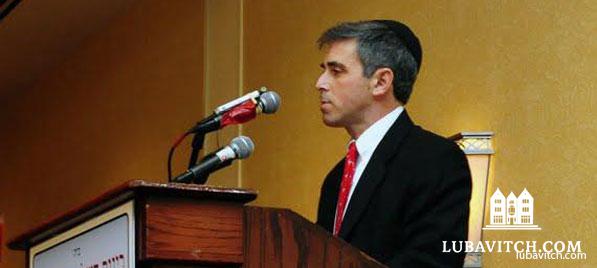(lubavitch.com) Six babies, and the possibility for many more, were first conceived at a Mumbai memorial in Merion Station, Pennsylvania last winter.
“The event touched me like nothing ever has,” says Dr. Michael Glassner, a founding partner of the Main Line Fertility and Reproductive Medicine in suburban Philadelphia.
As he learned of the six people murdered in the Chabad House, the world-renowned fertility specialist resolved to do his part to bring more life into the world.
Rabbi Shraga Sherman, director of Chabad-Lubavitch of the Main Line, recalls: “He came up to me and told me that he intends to help bring new life into the world,” to honor the memories of those killed.
A few days later, Dr. Glassner got a call from the rabbi about an East Coast couple that was having trouble conceiving. Soon after, the rabbi again turned to Glassner, this time about two additional couples in different states, who were desperately trying to have children of their own. All three couples were treated by Glassner, at no cost. The doctor also arranged for pharmaceutical companies to contribute complimentary drugs. Within a year, each of the three couples conceived and the women gave birth, respectively, to healthy sets of twins.
“I didn’t tell the truth to the rabbi that night,” declares the doctor. “I am not going to stop at this point. As long as I am practicing medicine, I will take care of all Shluchim for nothing.”
Infertility affects approximately twenty percent of couples. Of these, some twenty percent require in vitro fertilization (IVF), a process that involves the fertilization of eggs by sperm in a dish (outside the woman’s body). The embryos that result are transferred into the uterus for pregnancy. Though Glassner’s clinic boasts an enviable success rate with upwards of 50 percent of couples under 35 conceiving on the first try, the cost of that first go is often prohibitive. A single IVF treatment is priced at $10,000. The accompanying drugs typically cost an additional $5,000.
To pay for the expensive treatments, many couples take out a second mortgage on a home or incur heavy credit card debt. Glassner recalls patients who held bake sales in order to finance their dreams. Although his own overhead is ninety percent, he believes so strongly that everyone who wants to should be able to have children, that he often offers discounts.
“The concept of anyone not having children is horrible,” Glassner says. “But if there are shluchim out there who can’t undergo the procedures because of the cost,” he says, noting that the Shluchim essentially dedicate their lives to giving, “that is obscene.”
Beyond the price tag, there are other considerations an observant Jewish couple must keep in mind during treatment. A complex set of Jewish laws governs the use of IVF, including procedure and timing. Several years ago, Glassner’s practice became one of 13 in the Americas to partner with the Puah Institute. The Israel-based organization is involved with supervision, because while the eggs or sperm are being processed in the laboratory, they must be constantly supervised. Now, following significant adjustments in Main Line’s lab and personnel, Orthodox couples can participate completely in the complex procedures.
Glassner’s involvement with Chabad, starting some five years ago, was an elaborate process in its own right.
Though he had known Sherman for years, and was aware that the “enchanting, charismatic fellow” studied regularly with his friends, their relationship remained casual. But several years ago Glassner “found things lacking in his synagogue” and chose to switch to Chabad in order to “fill a void.”
For Glassner, a man so clearly dedicated to the next generation, bringing his own four children to Sherman’s synagogue has been a pivotal experience. His ten-year old “happily left the Conservative synagogue’s Hebrew school, where she cried before going.” Now she loves Chabad’s weekly classes.
Her older siblings, twins, “were not turned on by Judaism because of their own Hebrew school experiences.” But during the last week of high school, Glassner’s 19-year old son fulfilled an externship at Chabad. Somewhere in that time, he relearned Hebrew and started donning Tefillin. His twin sister was supposed to complete her externship at Main Line Fertility. But when she saw how much fun her brother was having, “she quit on me,” laughs their father. “It was the best insult I have ever had.”
Pushing 50, and on the cusp of his third decade in fertility medicine, Glassner is going strong. He is excited about this project and hopes that more Chabad representatives in need will learn of his offer.
Asked why he chose to contribute so generously to Chabad Shluchim, Glasser pointed to “the personal sacrifice they make” in their daily lives. “If they selflessly dedicate every hour of every day, how could I not sacrifice, comparatively, a miniscule amount?”
The good doctor says he feels it is nothing more than “my obligation. Because we all are just doing Hashem’s work.”

Be the first to write a comment.